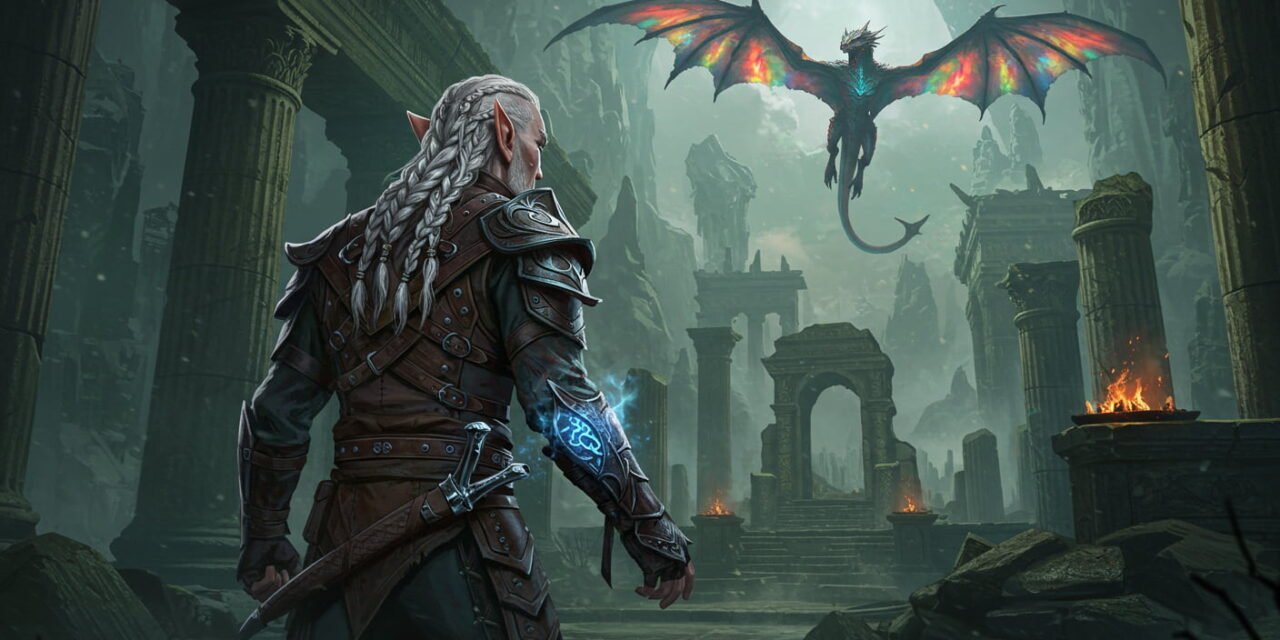In a revealing statement, David Gaider, former lead writer for BioWare’s Dragon Age series, has shed light on the internal dynamics of the studio during his tenure. Gaider claims that Electronic Arts (EA), BioWare’s parent company, consistently favoured the Mass Effect franchise over Dragon Age, leading to a sense of neglect and uncertainty surrounding the latter. This article delves into Gaider’s assertions, exploring the implications for both franchises and the broader RPG landscape.Kotaku+10pcgamer+10IGN+10
The Genesis of Dragon Age and Mass Effect
BioWare, renowned for its narrative-driven RPGS, launched Dragon Age: Origins in 2009, offering a dark fantasy world rich in lore and character development. In contrast, Mass Effect, introduced in 2007, presented a sci-fi universe with cinematic storytelling and action-oriented gameplay. Both franchises garnered critical acclaim and developed dedicated fanbases, yet their trajectories within BioWare differed significantly.TrueAchievements
Gaider’s Perspective on EA’s Preferences
According to Gaider, EA “never really got” Dragon Age, failing to understand its appeal and consistently favouring Mass Effect. He suggests that despite Dragon Age: Origins outselling the first Mass Effect, EA’s perception of Mass Effect as more “slick and modern” led to a disproportionate allocation of resources and attention. Gaider notes that Dragon Age was “always just shy of the axe” since its inception, indicating a persistent vulnerability within the studio hierarchy. pcgamer+10TheGamer+10pcgamer+10
The Shift in BioWare’s Creative Culture
Gaider also highlights a cultural shift within BioWare, where writing became undervalued. He recalls a time when the studio, once celebrated for its storytelling, began to see narrative elements as an “albatross” hindering progress. This change in attitude led to a focus on reducing writing, with leadership questioning, “How do we have LESS writing?” IGN+10The Kotaku Times+10Kotaku+10The Kotaku Times+3TrueAchievements+3pcgamer+3
Homogenization of Franchises
Aaryn Flynn, former BioWare General Manager, echoes Gaider’s sentiments, expressing regret over the homogenization of Dragon Age and Mass Effect. Flynn believes that Dragon Age should have retained its PC-centric, Neverwinter Nights-inspired identity rather than adopting the cinematic style of Mass Effect. This blending of identities may have diluted the unique strengths of each franchise. The Kotaku Times+5Xfire+5gamesradar+5gamesradar
The Impact on Dragon Age’s Development
The internal favouritism towards Mass Effect had tangible effects on Dragon Age’s development. Gaider points out that despite Dragon Age: Inquisition’s commercial success, the series faced numerous cancelled projects and a lack of consistent support. This inconsistent backing contributed to prolonged development cycles and uncertainty about the franchise’s future. TheGamer
Current State and Future Prospects
As of now, Dragon Age fans await the release of Dragon Age: Dreadwolf, with hopes that it will revitalise the series. Meanwhile, Mass Effect continues to receive significant attention, including remastered editions and a forthcoming instalment. The disparity in treatment between the two franchises underscores the lasting impact of EA’s preferences.gamesradar+3TheGamer+3Xfire+3
Conclusion
David Gaider’s revelations provide a candid look into the internal dynamics of BioWare and the influence of corporate priorities on creative endeavors. The preferential treatment of Mass Effect over Dragon Age not only affected the development of the latter but also reflects broader industry trends where commercial considerations often overshadow artistic integrity. As the gaming community anticipates future releases from both franchises, Gaider’s insights serve as a reminder of the delicate balance between creativity and corporate strategy.ga





